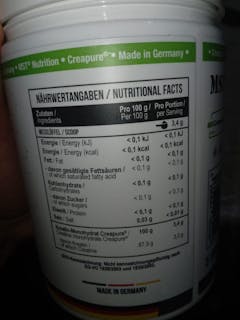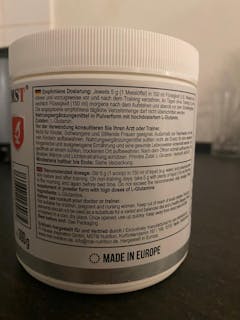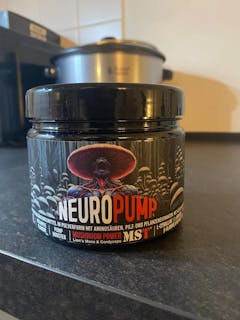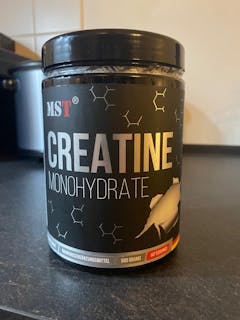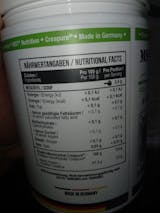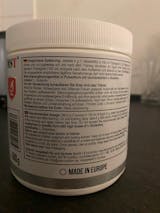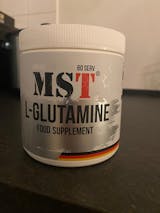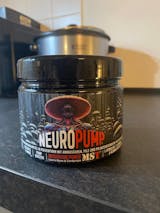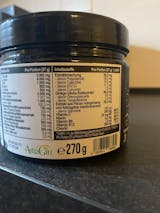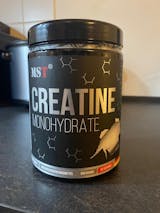Omega 3 what is it?
Fatty acids are essentially the "building blocks" from which the living organism builds fats. The body of an average person consists of about 20% fats (this is not only the subcutaneous fat, but also, for example, all the fat in the internal organs).
In addition, fatty acids are a component of the cell membranes of every organism. Fatty acids play an important role in all functions of our body, from normal brain function and memory to breathing and blood circulation.
Dietary fats contain three types of fatty acids:
- saturated;
- monounsaturated;
- polyunsaturated.
Fatty acids are essential components of fats, which in turn make up a significant part of the human body. On average, the human body consists of about 20% fats. These fats are found not only in the subcutaneous fat tissue, but also in internal organs. Fatty acids are integral components of cell membranes and play a crucial role in various body functions.
Here are some important aspects and effects of fatty acids:
-
Cell membranes : Fatty acids are essential components of the phospholipids in cell membranes that maintain the integrity and fluidity of the membranes, allowing the transport of nutrients and waste products in and out of the cells.
-
Energy source : Fatty acids serve as an important source of energy. When needed, they are oxidized in the mitochondria of cells to produce energy necessary for various physiological processes.
-
Brain function and memory : Omega-3 fatty acids, especially DHA (docosahexaenoic acid), are found in high concentrations in the cell membranes of nerve cells and are important for normal brain function and memory.
-
Anti-inflammatory effects : Some fatty acids, such as omega-3 fatty acids, have anti-inflammatory properties that may be helpful in the prevention and treatment of inflammatory diseases.
-
Immune system : Fatty acids are also involved in the regulation of the immune system. They influence the production of eicosanoids, which are signaling molecules that modulate the immune response.
Overall, fatty acids are essential not only for building fats in the body but also for a variety of vital functions. Their beneficial effects, especially in high concentrations, include supporting brain function, promoting cardiovascular health and modulating the immune system.
The direct omega-3 acids are:
- eicosapentaenoic acid EPA
- docosahexaenoic acid DHA
- Alpha Linolenic Acid ALA
When and how much Omega-3 per day?
The optimal amount of omega-3 fatty acids you should consume per day can vary depending on your individual health goals, age, gender, and health status, but here are some general recommendations:
-
EPA and DHA : The two most important omega-3 fatty acids are eicosapentaenoic acid (EPA) and docosahexaenoic acid (DHA). The American Heart Association recommends a daily intake of at least 250-500 milligrams of EPA and DHA for healthy adults for overall heart health. Individuals with high triglyceride levels or heart disease may need higher amounts, often up to 1,000 milligrams of EPA and DHA per day.
-
Alpha-linolenic acid (ALA) : Alpha-linolenic acid is a plant-based omega-3 fatty acid found in foods such as flaxseeds, chia seeds, walnuts, and canola oil. The recommended daily intake is about 1.1-1.6 grams for men and 0.7-1.1 grams for women.
-
Balanced diet : A balanced diet with omega-3 rich foods such as fatty fish (e.g. salmon, mackerel, sardines), flax seeds, chia seeds, walnuts and seaweed can help meet daily omega-3 needs.
-
Supplements : If you can't get enough omega-3 from your diet, supplements can be a convenient way to ensure you're getting enough EPA and DHA. The dosage of omega-3 supplements varies by product and can range from 250 to 1000 milligrams of EPA and DHA per capsule.
It is important to stick to recommended dosages and not to take excessive amounts of omega-3 fatty acids, as this may cause unwanted side effects. If you have any questions about taking omega-3 supplements or have specific health concerns, you should consult a doctor or nutritionist.
Omega 3 for athletes
Supplements containing omega-3 and omega-6 fatty acids are recommended for athletes to strengthen the immune system, which can be weakened by intense training. Omega 3 also helps reduce levels of cortisol, a stress hormone.
This allows you to increase the duration of training and therefore its effectiveness. In addition, as we already know, Omega 3 strengthens cell membranes, that is, it protects them from damage, which has a positive effect on the recovery process between training sessions.
How to take Omega correctly – instructions and side effects
The peculiarity of taking omega-3 and omega-6 fatty acids is their complex and proportion. The optimal ratio of omega-3 and omega-6 fatty acids in the human diet is 1:4, but in the modern world it is sometimes shifted several times in favor of omega-6.
In the right proportion to Omega-6, Omega-3 penetrates well into tissues, strengthens cell membranes and reduces inflammation, while Omega-6 fights excess cholesterol, cleanses blood vessels and prevents you from getting fat. The optimal daily norm of Omega-3 for the body is 1 gram per day.
If you exceed this norm several dozen times, you may experience side effects, as if you were "overeating" fat - nausea, diarrhea and other "signals" of the gastrointestinal tract. It is also recommended to consult a doctor before taking it, especially if you are prone to allergies to seafood.
The company MST® Nutriton, a sports nutrition manufacturer based in Berlin, has a large number of different Omega-3 types in its range:
MST® also carries out a double laboratory test of Omega 3 for heavy metal content and microbiology. This is very important to ensure that the food product always meets the declared standards and high quality of Omega 3.
When you buy Omega 3 from the German company MST Nutrition, you can always be sure that you are getting a high quality product at a reasonable price!
When should I take Omega-3?
The best time to take omega-3 depends on your personal habits, meals and daily routine. However, in general, there is no specific time that works for everyone and omega-3 fatty acids can be taken at any time of the day.
Some people prefer to take omega-3 supplements during a meal to reduce possible digestive discomfort and improve absorption. Because omega-3 fatty acids are fat-soluble, they can be better absorbed by the body when taken with other dietary fats. Therefore, taking omega-3 capsules during a high-fat meal may be beneficial.
Others prefer to take omega-3 supplements right before bed, as some research has shown that omega-3 fatty acids can have a calming effect and may help improve sleep.
Ultimately, it's important to find a routine that works best for you. You can take omega-3 supplements at a time that's most convenient for your daily schedule and works best with your meals.
It is also advisable to discuss taking omega-3 supplements with a doctor or nutritionist to determine the optimal dosage and timing of intake based on your individual needs and health goals.
Who should not take Omega-3?
Although omega-3 fatty acids are safe for most people and may provide many health benefits, there are certain groups of people who may not want to take omega-3 supplements or should consult their doctor before taking them. Here are some situations where caution is advised or people should avoid omega-3 supplements:
-
Allergies : People with known allergies to fish or other ingredients in omega-3 supplements should avoid them.
-
Blood thinners and anticoagulants : Omega-3 fatty acids can have a blood-thinning effect, so people who are already taking blood-thinning medications such as warfarin should discuss taking omega-3 supplements with their doctor to avoid possible interactions.
-
Cholesterol-lowering drugs : People taking statins or other medications to lower cholesterol should discuss taking omega-3 supplements with their doctor, as this combination may potentially interfere with the effectiveness of the medications.
-
Diabetes : People with diabetes should discuss taking omega-3 supplements with their doctor because they may affect blood sugar levels.
-
Pregnancy and breast-feeding : Pregnant or breast-feeding women should discuss the use of omega-3 supplements with their doctor, as it may affect the development of the fetus or breast-fed baby.
-
Liver disease : People with liver disease should discuss taking omega-3 supplements with their doctor, as high doses may potentially impair liver function.
You can take the supplements with Omega 3 and fatty acids
just order on the website www.mst-nutrition.de and we will deliver them with the help of "DHL" throughout Europe and the world, such as in the cities - Berlin, Hamburg, Cologne, Düsseldorf, Munich and other cities in Germany. Also order Omega-3 in capsules from our partners in Austria, England, Italy and other European countries. Look on the shelves of sports nutrition stores! Buy Omega 3 online in Germany, Austria and Switzerland.











